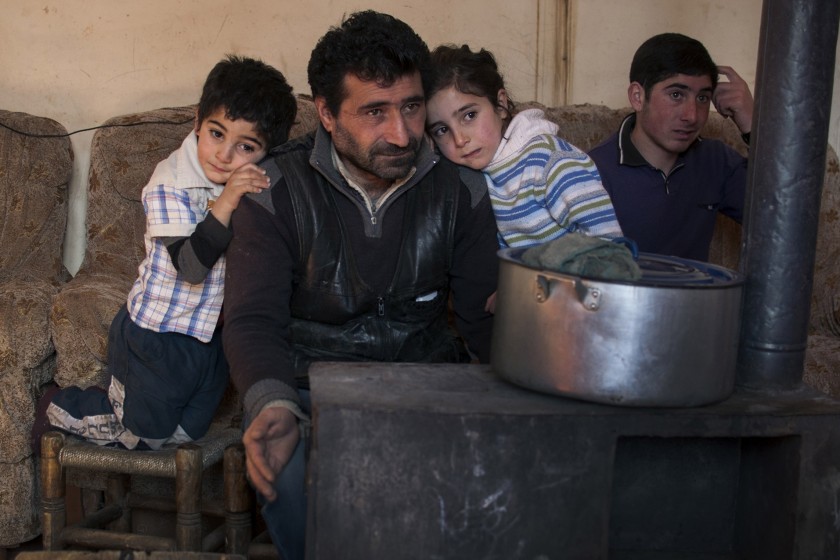
Raising Eight Kids in an Armenian Village: Flour on Credit and Wearing Shoes in Turn
Marine Martirosyan
Seven-year-old Narineh uses a hammer to pulverize dried animal dung placed in a bin by the stove to burn. It’s how the family heats the house.
The girl walks around barefoot. Narineh’s mother says she has no shoes or slippers. She’s waiting for the other kids to return from school so that Narineh can wear their shoes.
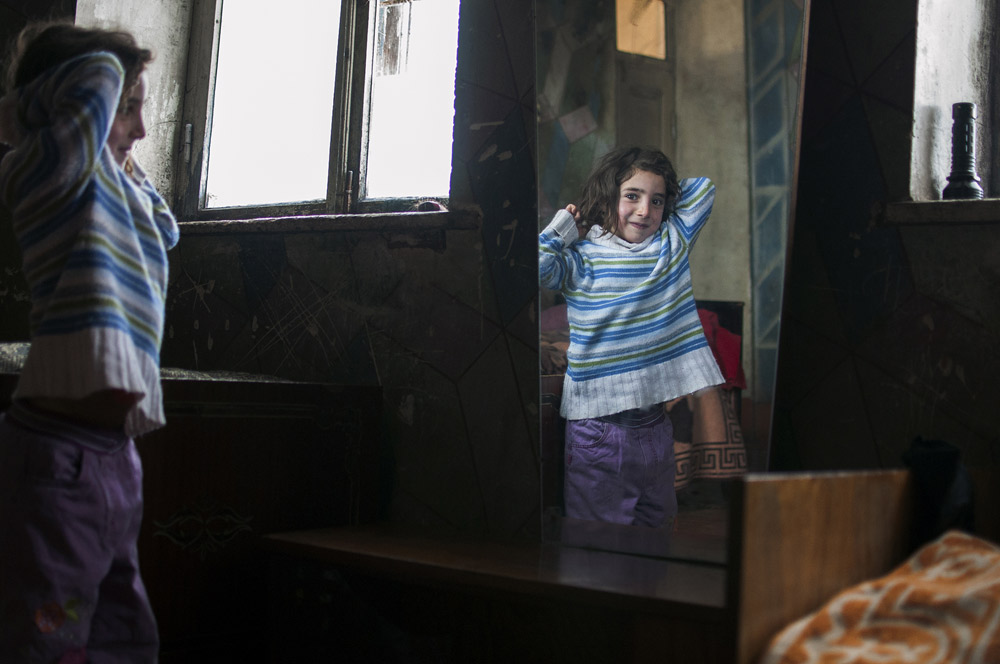
Narineh
Narineh’s parents haven’t sent her to school yet this year, living in the mountains as they do. Nevertheless, the girl can read and write. Karen, Narineh’s 16-year-old brother helps tutoring her.
She brings me her notebook, in which she’s written her ABCs. The girl has written the letters quite clearly. I ask if she’s written them. Yes, she replies, feeling proud of herself.
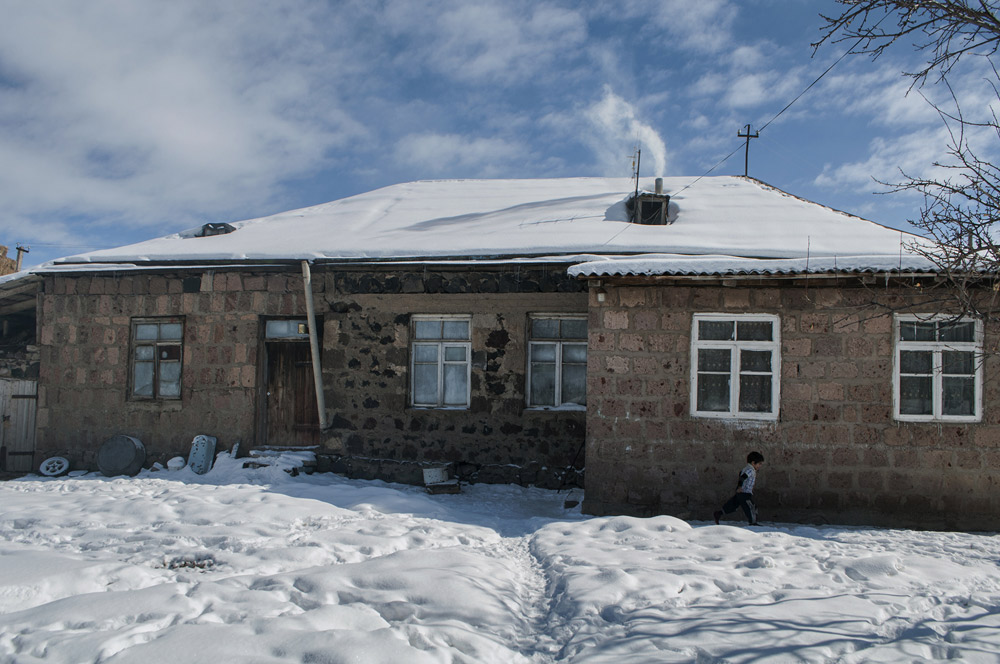
Family House
48-year-old Khachik Bozoyan lives with his wife and their eight children in the Gegharkounik village of Geghhovit. The house, built in 1963, has clothing stuck in holes in the outside walls to keep the cold and rain out. It’s a losing battle.
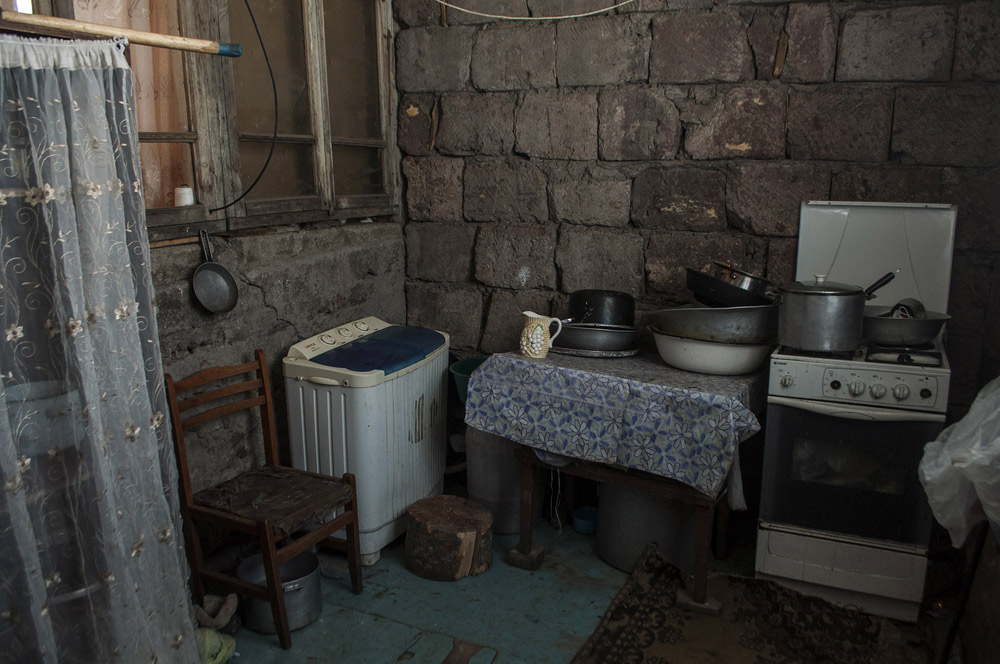
Before entering the house, there’s a small kitchen area behind a thin curtain. The family also bathes here. Water is fetched from a spigot in the yard.
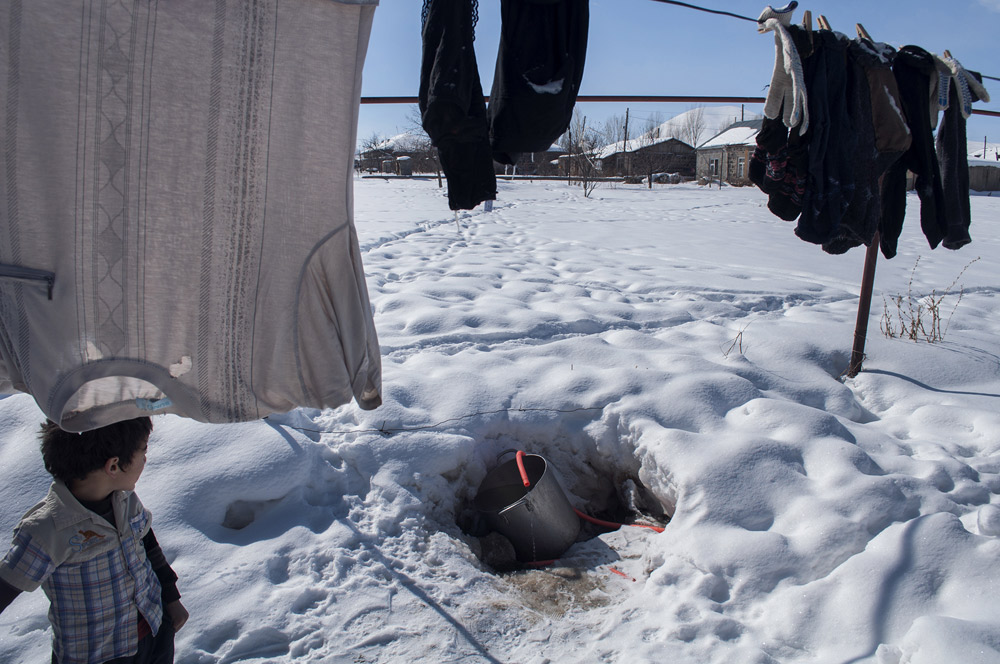
Mr. Bozoyan says it will take a lot of money to get a water pipe installed into the house.
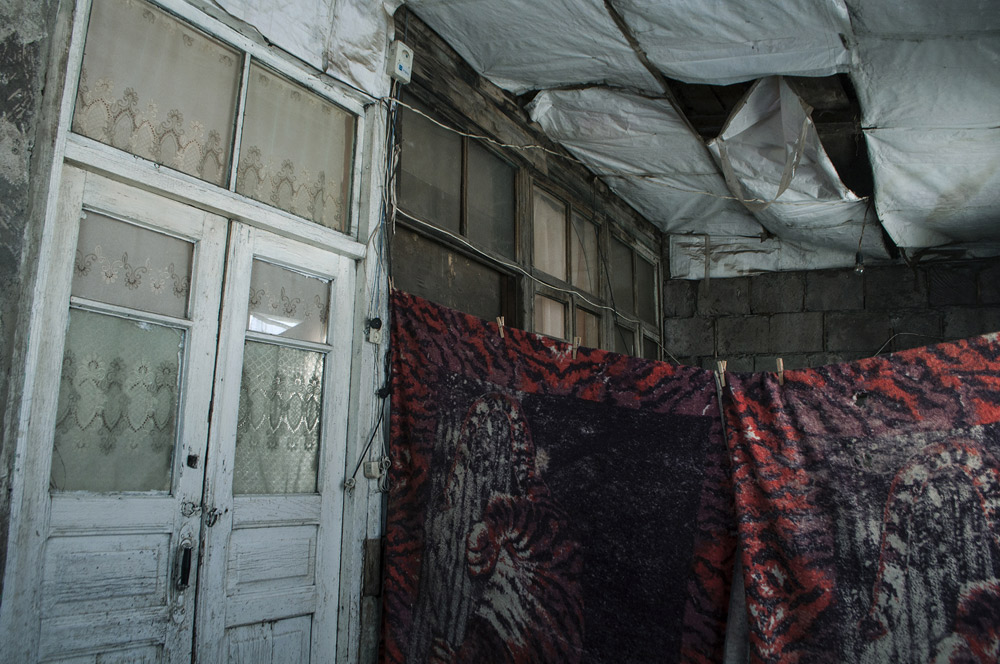
Ani was born twenty days ago. Her clothes are placed in a blue basin. There aren’t many clothes inside. It’s tough drying them in the winter cold. The baby girl sleeps in a stroller gifted the family by a doctor at the Martouni Hospital. The other seven children sleep in one room, sharing four beds. 36-year-old Hasmik Sahakyan, the mom, says they sleep wearing their clothes. The windows aren’t shut due to thick sheets of ice. Hasmik says her kids always ask when will they have a warm room to sleep in.
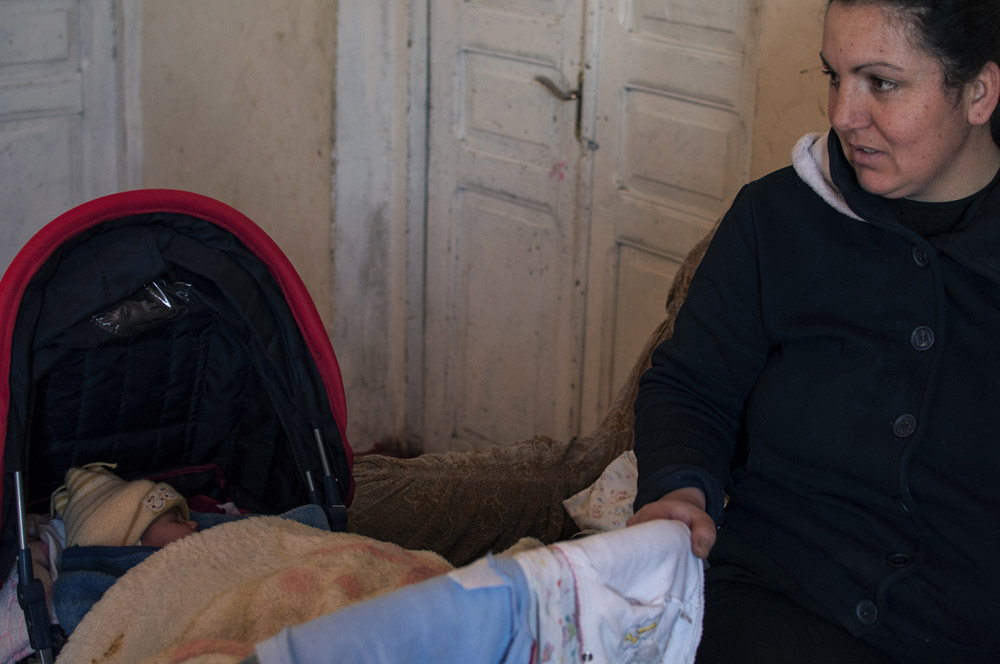
Hasmik tells me the children always help around the house, and never complain, even if there’s nothing to eat. She says her cupboards are bare right now. Her only hope is that when the car bringing flour rolls by she can beg the man to give her a sack on credit. One 50 kilo sack will last the family ten days.
Zara, the eldest child, got married last September after finishing high school. Four of the eight remaining at home (Karen, Meri, Zarineh, Vaghinak, Narek, Narineh, Hakob, Ani) go to school.
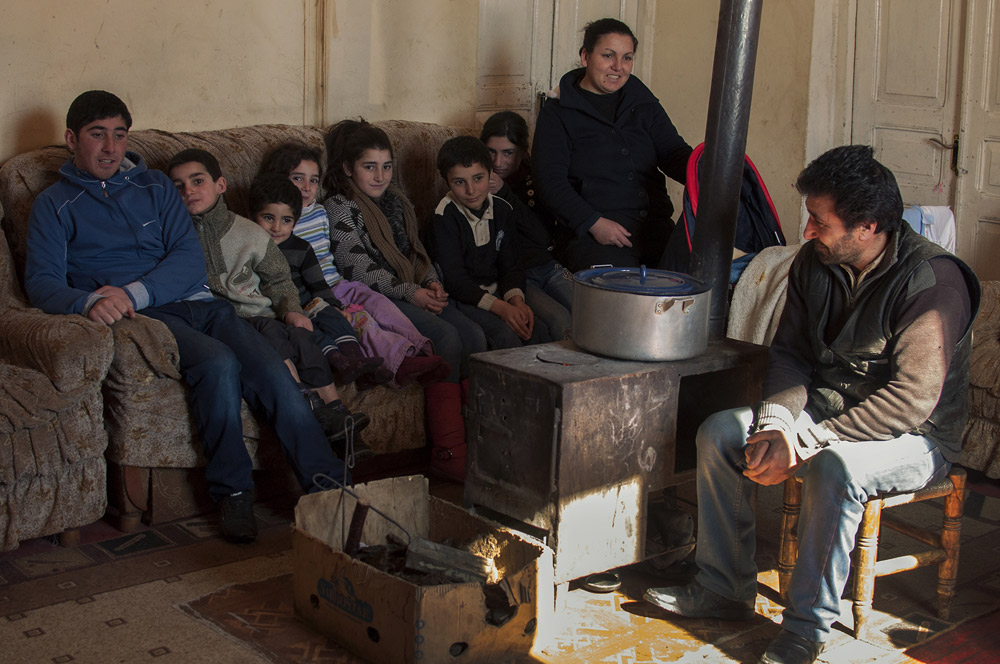
“In the village, they sometimes say, nine kids, wow, how do you manage?” Hasmik says not having material wealth, her kids are her pride and joy.
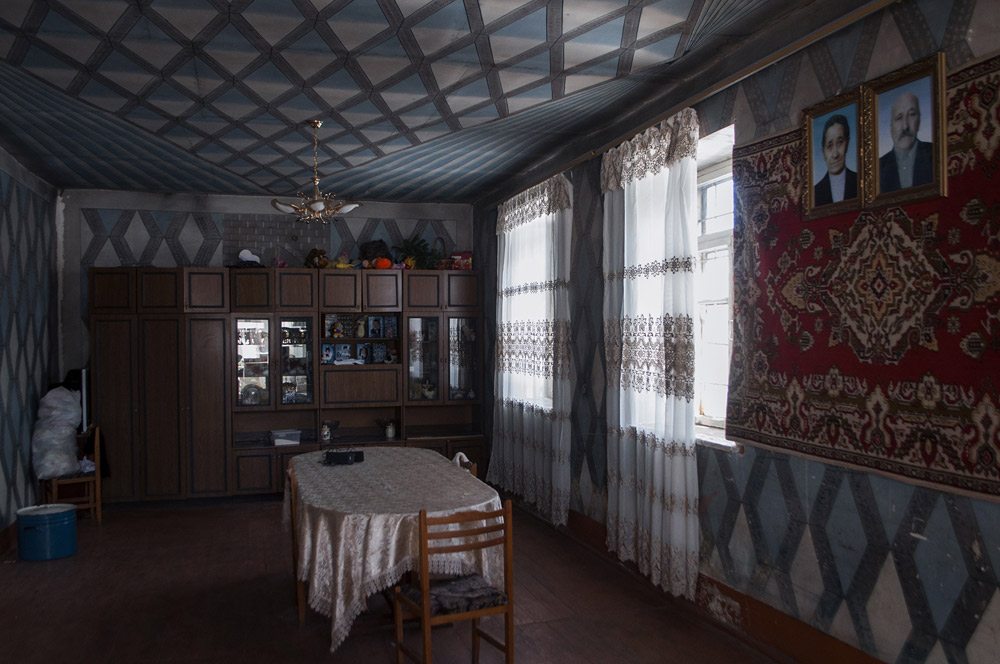
Khachik doesn’t talk much, head hung low, merely listening to his wife. Hasmik says that Khachik grew up in a family of ten kids and they still keep in touch despite the distance separating them.
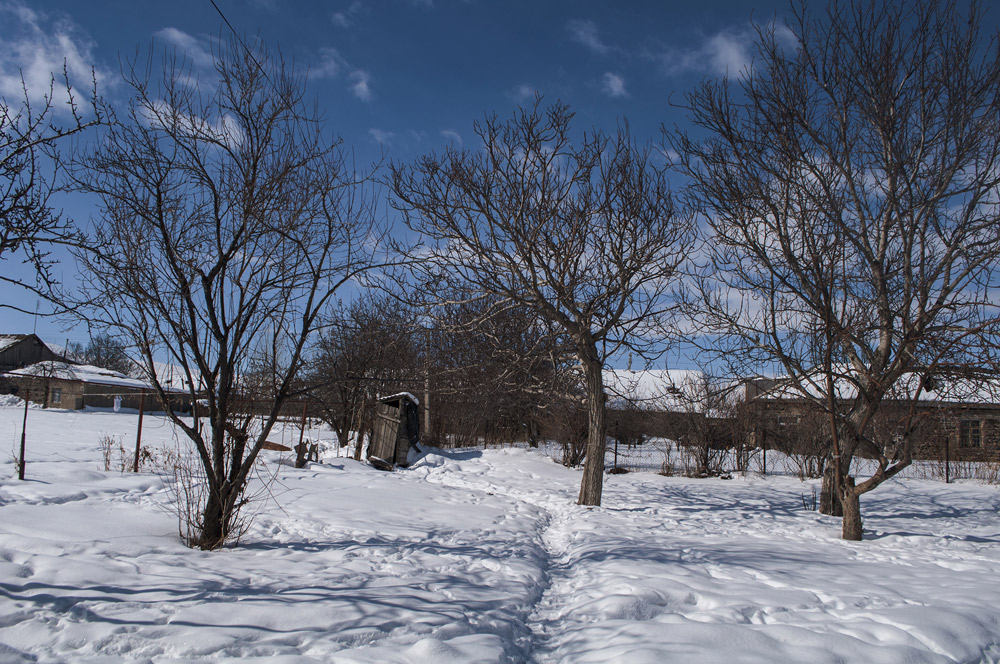
The couple says village life is tough. The family goes up into the mountains from April to October tending herds and growing potatoes. They can make 20,000 AMD for each animal they take care of during the season.
The family owns two cows and ten sheep, providing them with milk and yoghurt. The government allocates a monthly 82,000 AMD stipend for the children.
Hasmik married before finishing the tenth grade. Our conversation about her wedding seems to lift her spirits. Sunlight makes the drawings on the windows appear clearer. Hasmik says the kids painted them.
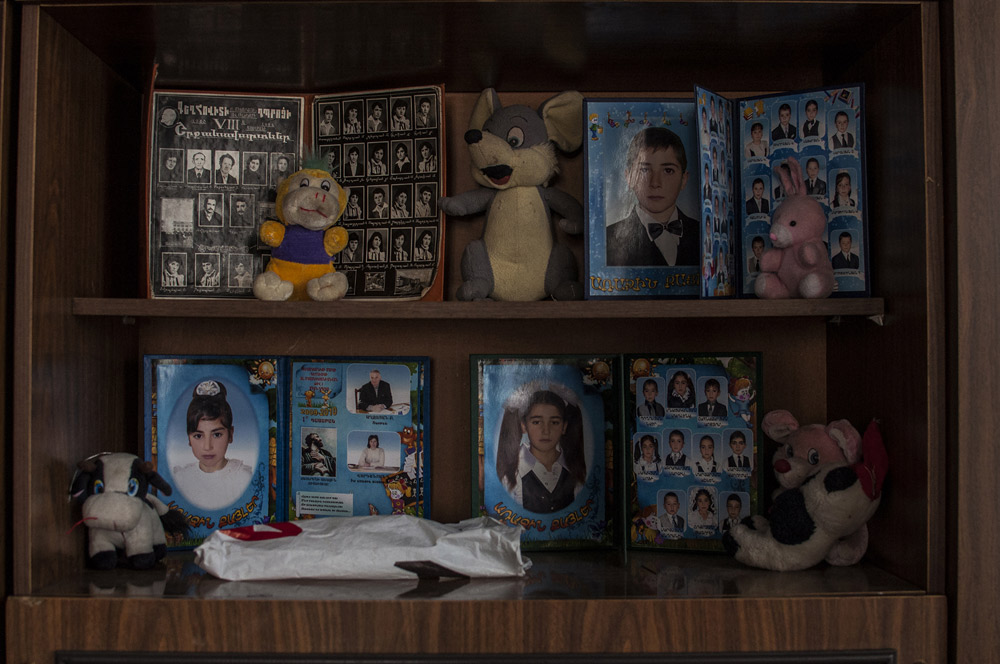
The mother points out that each of the kids has a particular interest and hobby. Zarineh has a good voice and likes to sing. Meri is a talented embroiderer. Narek likes to farm. Hakob wants to become a mechanic.
“Let them get a good education and become good people. One can become a dancer, another a painter or a mechanic. I don’t want them to see what I have seen in my life,” Hasmik says.
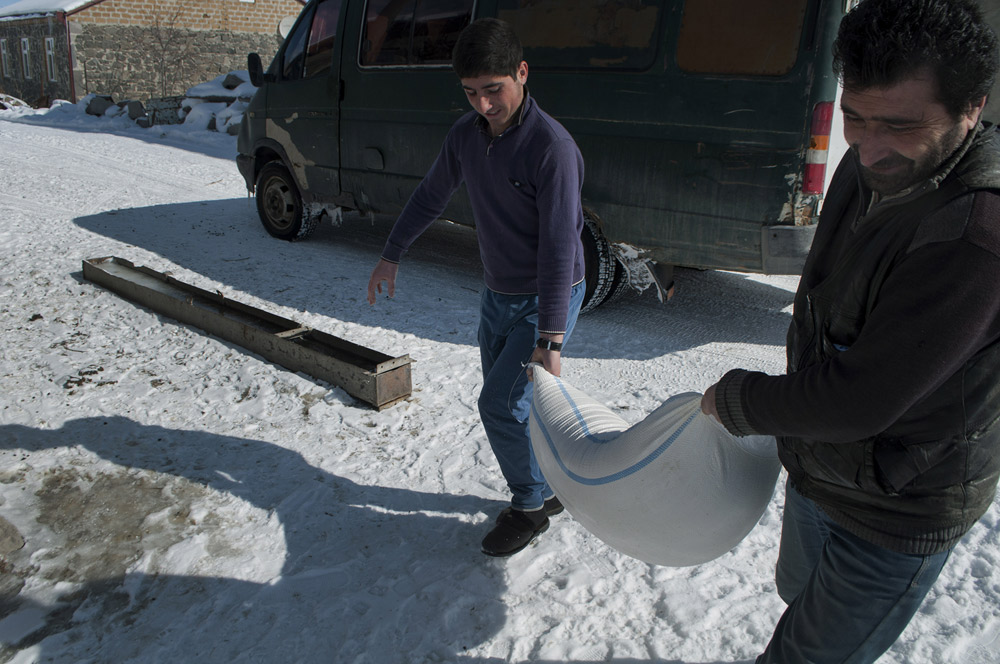
As we’re talking, the flour truck arrives. Khachik takes a sack and brings it home with Karen. Later, Hasmik bakes some bread. She uses 4-5 kilos per day. The smell of freshly baked bread permeates the house. Hasmik takes a warm golden loaf from the stove and places it on the table. 5-year-old Hakob looks at the bread intently. Hasmik tears a piece off and gives it to him.
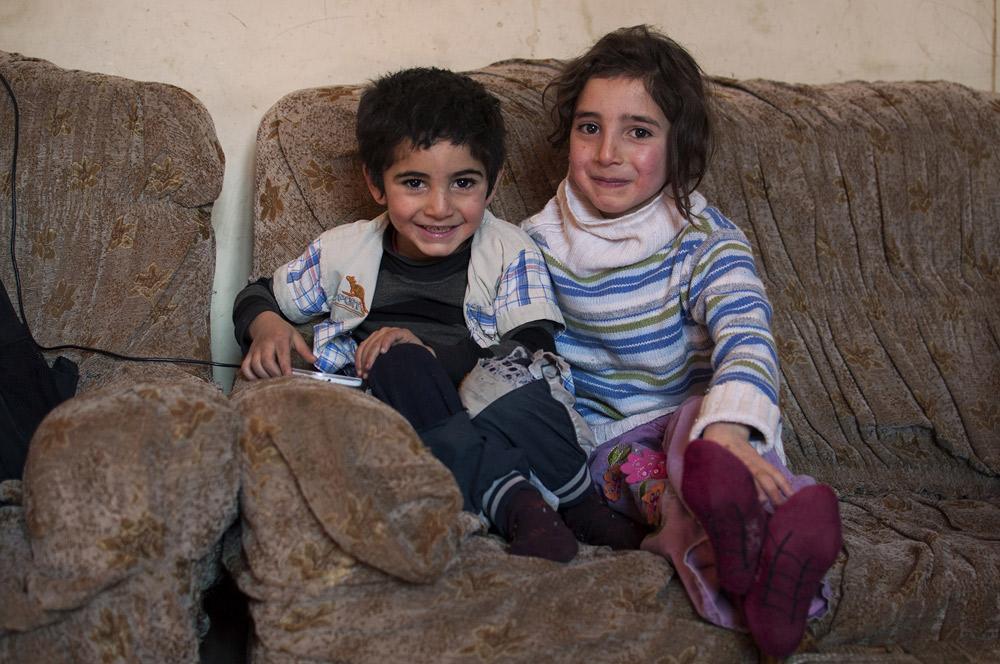
Hakob and Narineh
Narek returns from school and quickly takes off his galoshes. His socks have holes. The boy warms his feet by the stove. As I take a photo of Narek, Khachik sees the holes and tells his son to put his galoshes on so they don’t show.
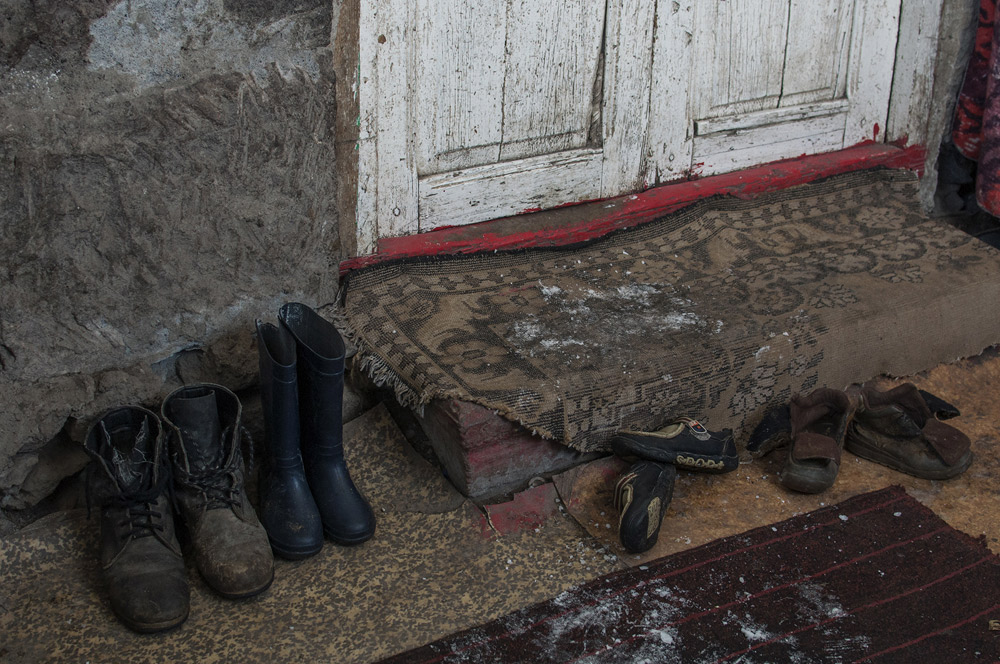
I ask the children to sing something. Zarineh really has a great voice. After singing, Hakob asks his mom for another piece of bread. Hasmik tears off a piece for him.
“I don’t grumble. My children are my joy, my existence,” she says.
Photos: Narek Aleksanyan
 Videos
Videos Photos
Photos




Write a comment